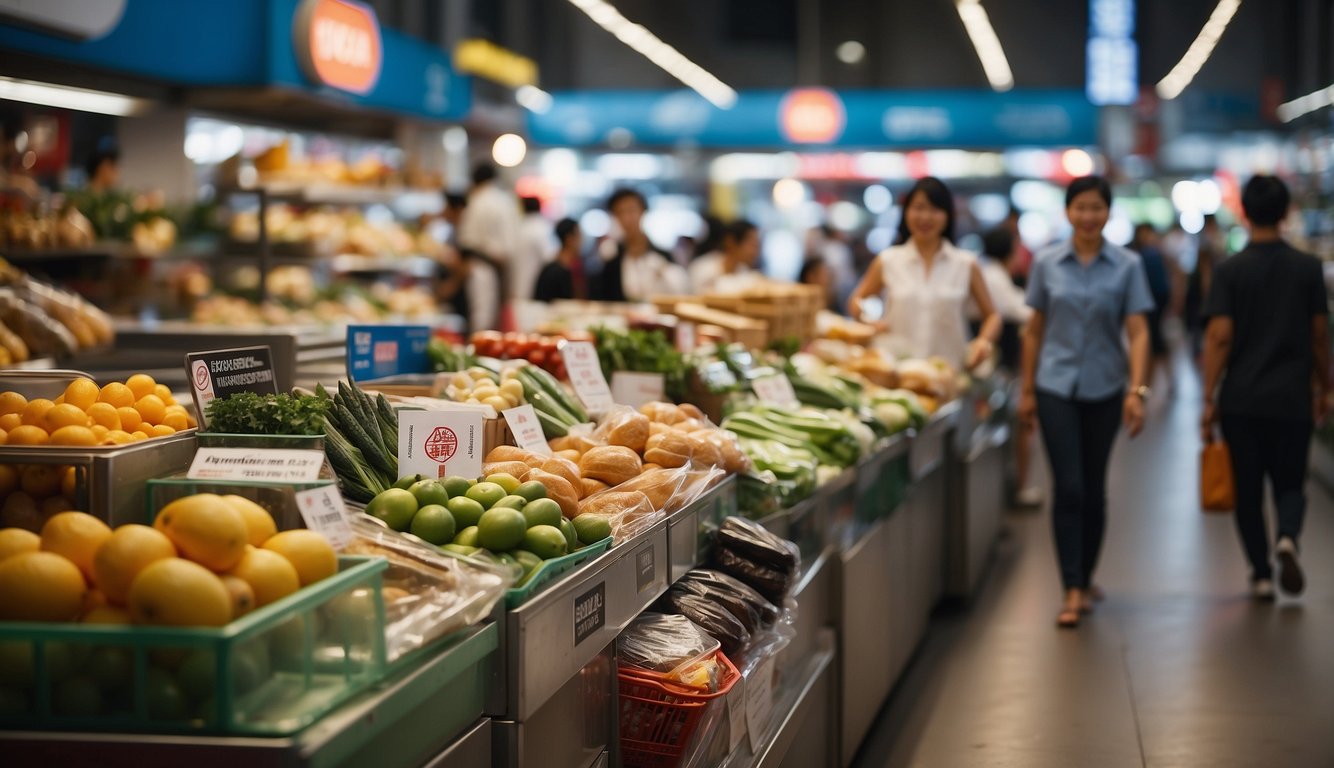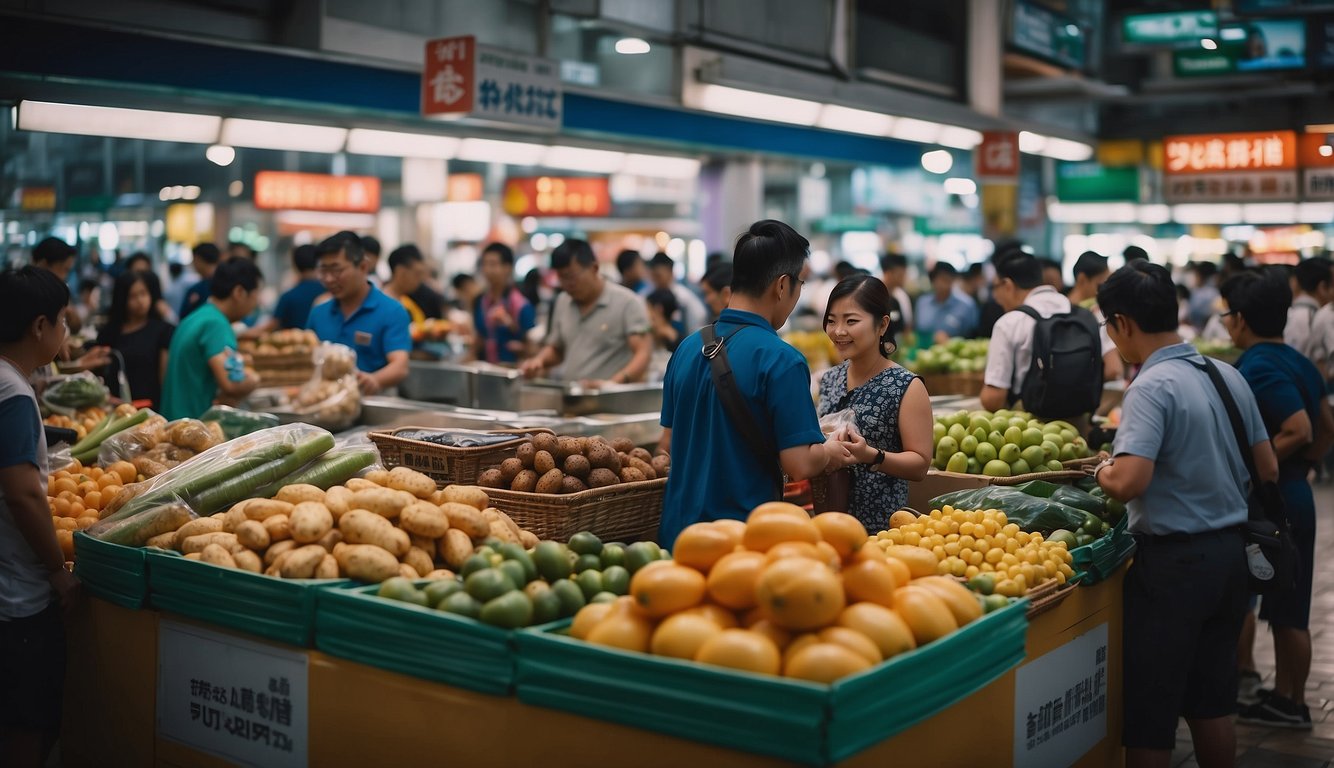Goods and Services Tax Singapore
If you’re a business owner or resident of Singapore, you’ve likely heard of the Goods and Services Tax (GST). GST is a consumption tax levied on most goods and services imported or supplied in Singapore. The tax is currently set at 7%, but this rate may change in the future. In this article, we’ll provide you with an introduction to the GST in Singapore, explain how it works, and answer some frequently asked questions.

Understanding GST in Singapore can be confusing, but it’s an essential part of doing business in the country. GST applies to most goods and services, including imports, and is levied at every stage of the supply chain. This means that businesses must register for GST, charge GST on their sales, and pay GST on their purchases. However, not all goods and services are subject to GST, and there are some exemptions and reliefs available.
Navigating GST processes can be a challenge, but there are resources available to help you. The Inland Revenue Authority of Singapore (IRAS) is responsible for administering the GST, and they provide a wealth of information and guidance on their website. Additionally, there are many accounting and tax firms in Singapore that can assist you with GST compliance and reporting.
Understanding GST in Singapore

If you are doing business in Singapore, you need to understand Goods and Services Tax (GST). GST is a consumption tax levied on the import of goods (collected by Singapore Customs) as well as nearly all supplies of goods and services in Singapore. GST is also known as Value-Added Tax (VAT) in some countries.
GST Registration and Compliance
If your business has an annual turnover of more than SGD 1 million, you need to register for GST. Voluntary registration is also possible if your annual turnover is less than SGD 1 million. GST-registered businesses must comply with the GST Act, which includes issuing tax invoices, submitting GST returns and paying GST on time.
Types of GST and Applicable Goods and Services
There are three types of GST: standard-rated, zero-rated, and exempt. Standard-rated supplies are subject to GST at the prevailing GST rate of 7%. Zero-rated supplies are subject to GST at 0%, while exempt supplies are not subject to GST.
GST is applicable to most goods and services in Singapore, including imported services, digital payment tokens, and investment precious metals. However, some goods and services are exempt or out-of-scope supplies, such as healthcare, debt, and duties.
GST Rates and Impact on Consumers and Businesses
The current GST rate in Singapore is 7%. GST has an impact on both consumers and businesses. Consumers pay GST on their purchases, which increases the cost of living. However, some basic necessities are exempt or zero-rated to help lower-income households.
Businesses must charge GST on their taxable supplies and pay the GST collected to the Inland Revenue Authority of Singapore (IRAS). They can claim input tax credit for the GST paid on their purchases and expenses. GST-registered businesses can also benefit from schemes such as the Major Exporter Scheme and Tourist Refund Scheme.
In conclusion, understanding GST is crucial for businesses in Singapore. By identifying the applicable GST rates, supplies of goods and services, and compliance requirements, businesses can save on costs, comply with regulations, and communicate with government agencies. For more information, visit the official website of IRAS or other trusted websites with secure HTTPS connections and lock icons. You can also sign up for e-learning courses on GST registration, compliance, and accounting.
Navigating GST Processes

If you are running a business in Singapore, you will need to register for the Goods and Services Tax (GST) if your taxable turnover exceeds S$1 million per year. Once you register, you will need to file and pay GST to the Inland Revenue Authority of Singapore (IRAS) regularly. Here are some important things to keep in mind when navigating GST processes.
Filing and Paying GST
You will need to file your GST returns and pay any tax due to IRAS on time. The frequency of your GST returns will depend on the amount of your taxable turnover. You can file your GST returns online using myTax Portal on the IRAS website. You can also pay your GST online using digital payment tokens.
GST Schemes and Reliefs
There are various GST schemes and reliefs that you may be eligible for. For example, if you are a major exporter, you may be able to benefit from the Major Exporter Scheme (MES) which allows you to defer the payment of GST on your imports. If you are a tourist, you may be able to claim a refund of the GST paid on your purchases under the Tourist Refund Scheme (TRS). You can find more information about the various GST schemes and reliefs on the IRAS website.
Understanding GST for International Transactions
If you are involved in international transactions, you will need to understand how GST applies to your exports, imports, and supplies of goods and services. For example, if you export goods, you may be able to zero-rate your supplies of goods if certain conditions are met. If you import services, you may need to account for the GST under the reverse charge mechanism. You can find more information about GST for international transactions on the IRAS website.
In conclusion, navigating GST processes can be complex, but with the right knowledge and support, you can ensure that you comply with the GST regulations in Singapore. Always communicate with trusted websites, such as the official IRAS website, which is a secure website with an HTTPS lock, to identify and understand the latest GST regulations and processes.
Frequently Asked Questions

How can I claim a refund on GST for my purchases in Singapore?
If you are a tourist visiting Singapore, you may be eligible for a refund on the GST paid on your purchases. To claim a refund, you must have spent a minimum of SGD100 (including GST) at participating shops. You must also be leaving Singapore within two months of your date of purchase. You can claim your refund at the airport or cruise terminal before you depart.
What items are exempt from GST in sunny Singapore?
Some items are exempt from GST in Singapore, including financial services, residential properties, and most basic food items. However, there are some exceptions to this rule, such as chocolate and candy, which are subject to GST.
Is there a quick way to calculate GST payable on my transactions?
Yes, there is a quick way to calculate the GST payable on your transactions. You can multiply the total amount of your transaction by the prevailing GST rate of 7% (as of January 2024). For example, if your transaction is SGD100, the GST payable would be SGD7.
What changes to expect in Singapore’s GST for the year 2024?
As of January 2024, the GST rate in Singapore will be 7%. The government has announced that the GST rate will be raised to 8% with effect from 1 Jan 2023; and to 9% with effect from 1 Jan 2024.
Who should be shouldering the GST in Singapore’s bustling market?
In Singapore, the burden of GST is generally borne by the end consumer. Businesses are required to charge GST on their goods and services and remit the collected GST to the government. However, some businesses may be eligible for GST exemptions or refunds.
Could you enlighten me on the key points of the Goods and Services Tax Act of 1993?
The Goods and Services Tax Act of 1993 is the primary legislation governing the GST in Singapore. The key points of the Act include the definition of GST, the registration and administration of GST, the collection and payment of GST, and the penalties for non-compliance with the Act. The Act also sets out the rules for claiming GST refunds and exemptions.




